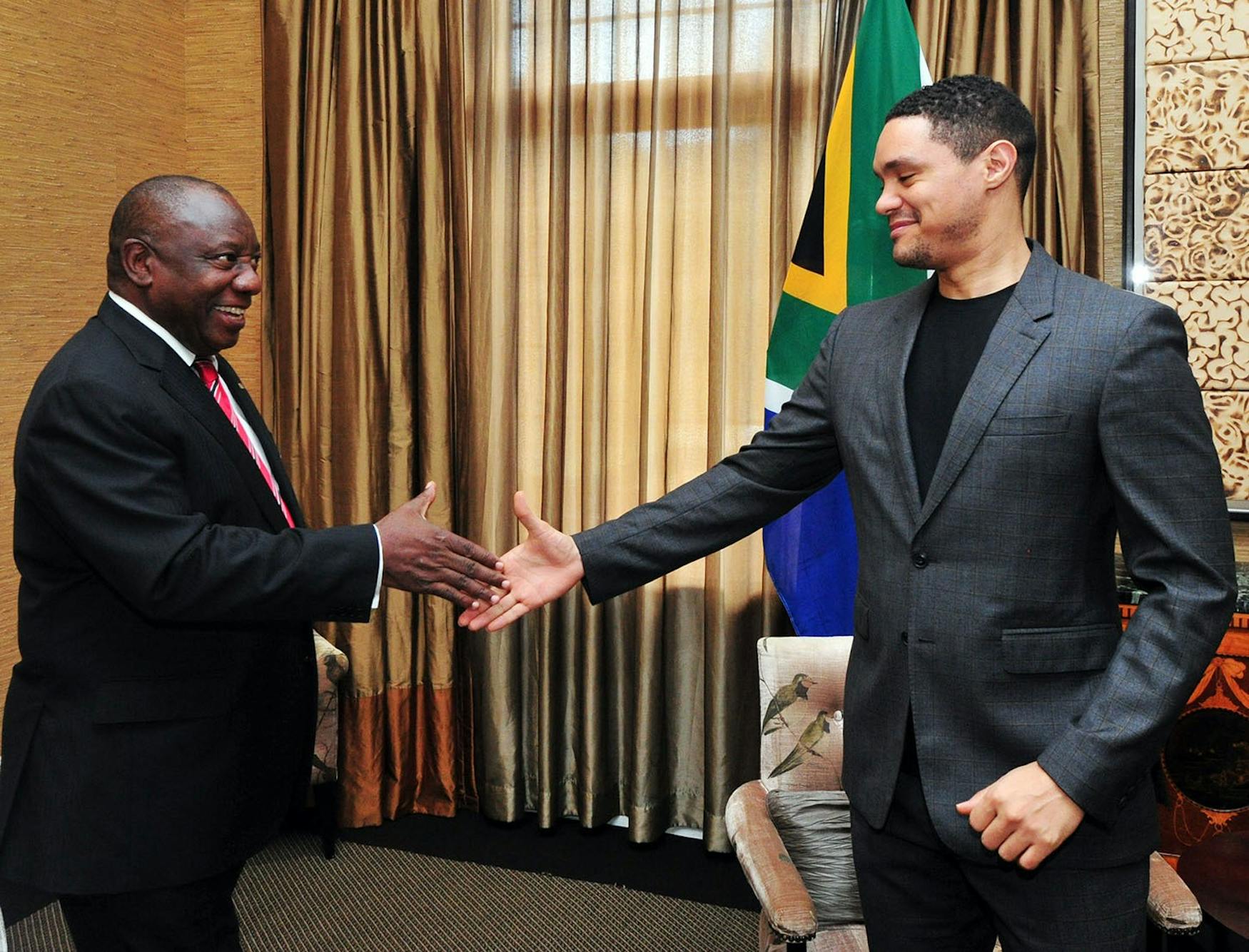When it comes to media role models, Trevor Noah tops the list
If you were to skim across the channels of late-night television shows, you’d only find older white men hosting shows, but that’s not the case for Comedy Central’s “The Daily Show,” and they have Trevor Noah to thank for that. Noah, the South African comedian and television personality, is anything but the norm. He is a young, biracial immigrant whose career in comedy and television is only just beginning. Born to parents that were never supposed to be together, a Xhosa African mother and a white father, Noah grew up in South Africa after the apartheid. Since his parents had an interracial relationship, Noah seldom saw his father and spent much of his childhood living with his mother and grandparents. The cities and neighborhoods in South Africa were divided by color, and the Black neighborhood he lived in was a dangerous one to be seen in. As Noah explained in an interview with Terri Gross on NPR, , “My grandmother kept me locked in the house when I was staying with the family in Soweto ... if the police did show up ... it was a constant game of hide-and-seek.”
In his recent memoir, “Born A Crime,” which immediately hit bookshelves and soon became a New York Times Best Seller, he discussed how his childhood shaped who he is and influenced the work he does today. He talked about always being ostracized when he was younger because he was light-skinned; being neither Black nor white, he did not belong. But, because of the multitude of languages he spoke, he learned how to become a chameleon and fit in with different groups of people through “code-switching” — He would slightly change his accent or speak in a different language to show that he was not as different as people thought. His ability to mimic accents and voices on “The Daily Show” and to convey news stories from his perspective as an immigrant Black man is quite impressive. Humor played an important role in his life not only in overcoming obstacles but also in simply having fun. He and his mother’s relationship was full of witty comebacks and jokes.
In an interview with the Harvard Business Review, Noah explained why he became a comedian. He says, “I always felt an innate joy making people laugh. I always loved performing. And then somebody paid me to do it — as a profession. But I loved it before I earned any money, so I think it was always going to be my natural course.”
He also explained that he is able to connect with audiences through authenticity: “I think the most important thing is to instantly give them a sense of who you are ... If a speaker is nervous and tells the audience that, people immediately ...respond accordingly. If a performer is in a good mood..., the crowd will [match] that energy. So for me, the rapport is built by a genuineness conveyed.” Despite Noah’s unique position in the news landscape, he uses his comedic and journalistic qualities to engage with the audience. Since Noah became the host of “The Daily Show,” the producers have been more intentional about adding more diversity. In a Wall Street Journal Panel, Jen Flanz, the executive producer of “The Daily Show,” explained, “When you came to show … we made a real effort to book women, people of color.” Noah emphasizes the importance of having true representation rather than tokenism and the importance of reaching diverse audiences by keeping the show fresh and unique.
Personally, the first time I really ever watched “The Daily Show” was when Noah started there. His comedy, sharp wit, and intelligence on a variety of topics were amazing to see. The past month, when he talked about the controversy over the Queen of England’s passing, he succinctly delivered his point of view in an understanding way. If you know anything about the controversy, there were mixed feelings about the death of the Queen.
He explained why those who mourned her death should not expect everyone to react the same way. Not everyone had the same relationship with the Queen. While to some she was a grandmother or an important figure, to others she was a symbol of colonization. The very reason why some people were glad she was no longer in power was due to imperialist and colonialist ideals. For example, Noah says, “I know some of these reactions seem extreme but when you consider what the British Empire did, these reactions are actually pretty reasonable. You can’t expect the oppressed to mourn the oppressor.” This is simply raw truth. He balances humor and heavy topics without minimizing the importance of the topics at hand. Additionally, “The Daily Show” creators successfully tailor content for Twitter, Instagram, Youtube Shorts, and more recently, TikTok based on the creators research on these social media platforms, Noah explained it best: “‘The Daily Show doesn’t live in one space because news doesn’t live in one space.”



Please note All comments are eligible for publication in The Justice.